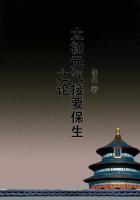We know not whether the result of her Italian studies, so far as it could yet be seen, will be accepted as a good or desirable one.Certain it is, that since her arrival in the pictorial land, Hilda seemed to have entirely lost the impulse of original design, which brought her thither.No doubt the girl's early dreams had been of sending forms and hues of beauty into the visible world out of her own mind; of compelling scenes of poetry and history to live before men's eyes, through conceptions and by methods individual to herself.But more and more, as she grew familiar with the miracles of art that enrich so many galleries in Rome, Hilda had ceased to consider herself as an original artist.No, wonder that this change should have befallen her.She was endowed with a deep and sensitive faculty of appreciation; she had the gift of discerning and worshipping excellence in a most unusual measure.No other person, it is probable, recognized so adequately, and enjoyed with such deep delight, the pictorial wonders that were here displayed.She saw no, not saw, but felt through and through a picture; she bestowed upon it all the warmth and richness of a woman's sympathy; not by any intellectual effort, but by this strength of heart, and this guiding light of sympathy, she went straight to the central point, in which the master had conceived his work.Thus she viewed it, as it were, with his own eyes, and hence her comprehension of any picture that interested her was perfect.
This power and depth of appreciation depended partly upon Hilda's physical organization, which was at once healthful and exquisitely delicate; and, connected with this advantage, she had a command of hand, a nicety and force of touch, which is an endowment separate from pictorial genius, though indispensable to its exercise.
It has probably happened in many other instances, as it did in Hilda'scase, that she ceased to aim at original achievement in consequence of the very gifts which so exquisitely fitted her to profit by familiarity with the works of the mighty old masters.Reverencing these wonderful men so deeply, she was too grateful for all they bestowed upon her, too loyal, too humble, in their awful presence, to think of enrolling herself in their society.Beholding the miracles of beauty which they had achieved, the world seemed already rich enough in original designs, and nothing more was so desirable as to diffuse those self-same beauties more widely among mankind.All the youthful hopes and ambitions, the fanciful ideas which she had brought from home, of great pictures to be conceived in her feminine mind, were flung aside, and, so far as those most intimate with her could discern, relinquished without a sigh.All that she would henceforth attempt and that most reverently, not to say religiously was to catch and reflect some of the glory which had been shed upon canvas from the immortal pencils of old.
So Hilda became a copyist: in the Pinacotheca of the Vatican, in the galleries of the Pam-fili-Doria palace, the Borghese, the Corsini, the Sciarra, her easel was set up before many a famous picture by Guido, Domenichino, Raphael, and the devout painters of earlier schools than these.Other artists and visitors from foreign lands beheld the slender, girlish figure in front of some world-known work, absorbed, unconscious of everything around her, seeming to live only in what she sought to do.They smiled, no doubt, at the audacity which led her to dream of copying those mighty achievements.But, if they paused to look over her shoulder, and had sensibility enough to understand what was before their eyes, they soon felt inclined to believe that the spirits of the old masters were hovering over Hilda, and guiding her delicate white hand.In truth, from whatever realm of bliss and many colored beauty those spirits might descend, it would have been no unworthy errand to help so gentle and pure a worshipper of their genius in giving the last divine touch to her repetitions of their works.
Her copies were indeed marvellous.Accuracy was not the phrase for them; a Chinese copy is accurate.Hilda's had that evanescent and ethereal life--that flitting fragrance, as it were, of the originals--which it isas difficult to catch and retain as it would be for a sculptor to get the very movement and varying color of a living man into his marble bust.Only by watching the efforts of the most skilful copyists--men who spend a lifetime, as some of them do, in multiplying copies of a single picture--and observing how invariably they leave out just the indefinable charm that involves the last, inestimable value, can we understand the difficulties of the task which they undertake.















